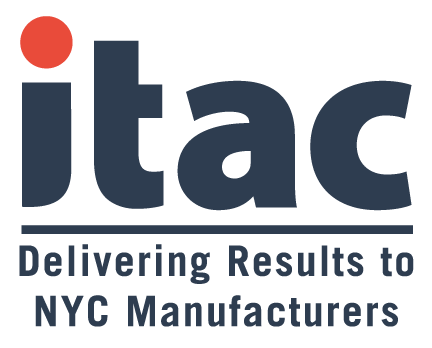Flexible schedules, pay for training and more have helped three Georgia companies attract and retain workers.
Hiring and retaining talent is a continuous concern and investment for every manufacturer, large or small, rural or multinational. It is hard to find and keep people with the right skills. It’s also expensive. According to The Society for Human Resource Management, in 2016 it cost over $4,000 and took 40 days to complete each new hire. Those 40 days spent looking for the right person impact productivity—and then there’s the time it takes to train each new employee and get them up to speed.
Even as the unemployment rate has skyrocketed during the pandemic, manufacturers continue reporting difficulty filling open positions. It’s not a problem that will go away by itself. Coming out of the pandemic, U.S. manufacturing is expected to increase at 3.6% annually. Manufacturers are smart to be planning now to meet future business needs — finding and hiring the right people and upgrading training to retain top talent once they have been hired.
Recently, the Georgia Manufacturing Extension Partnership (GaMEP) at Georgia Tech, part of the MEP National Network, interviewed three of their manufacturing clients, all different-sized companies, about strategies they have found successful for hiring and retaining talent.
Workforce Solution: Hire for soft skills and the right fit
Mohawk Industries is a flooring manufacturer based in Calhoun, Georgia. Founded in 1878, the company employs 10,000 people in Georgia and 40,000 worldwide. Mohawk’s leadership values technical expertise, but they also look for soft skills, which are much harder to teach.
Leadership skills, discipline and motivation can signal great potential. This was Nathan Bennett’s skill set when he applied for a job at Mohawk with no manufacturing experience. A two-time NASKA World Martial Arts Champion, he demonstrated strong discipline and leadership skills. Although he didn’t get the job he applied for, a Mohawk hiring manager saw his potential and offered him a job in chemical compounding – something Bennett had never even heard of and had to look online to understand. The hiring manager told Bennett that Mohawk wanted him for his leadership skills and they could teach him the rest.
The company’s focus on finding the right fit for their team paid off. Bennett is now the safety manager of two plants, leading more than 650 people and looking for others who are adaptable, motivated, and willing to learn new skills in order to cultivate new leaders in the organization. As a leader, Bennett feels it’s all about making personal connections with employees to cultivate their inner confidence and nurture a culture of working toward a common goal. “I’m boots-on-the-ground every day and address each person as a professional,” he said. “We are one of the biggest companies in a small town in northwest Georgia, so it’s important to have our team’s loyalty.”
Bennett is one of many leaders at Mohawk who are investing in their employees. The company fosters leadership at all levels by attracting, motivating, educating, and—just as importantly—promoting employees from within. This keeps the team loyal to each other, to the processes they’ve created, and to the company.
Mohawk runs its own internal training program, putting each person through a one-week safety course every four years. The company is also invested in their employees’ well-being. Monitors located in employee gathering places at Mohawk promote monthly health and wellness topics such as stress management that are also discussed in pre-shift employee meetings, and list training opportunities and supervisory openings. The company also encourages employee advancement through a 100% tuition reimbursement program for degree programs, certifications, and other professional development related to the employee’s field.
Workforce Solution: Create talent through apprenticeship programs
Corrugated Replacements is a 140-person, family-owned manufacturer in Blairsville, Georgia, that makes replacement parts for corrugated machinery. President Jenny Chandler spent much of her childhood observing on the shop floor of her family’s business. She knew how to run the machines by age 7 and could program them by age 11. As a child, she also observed management styles and how workers responded to them, which helped shape her management approach—leading by example.
A few years ago, Chandler worried about the company’s aging workforce—the average employee age was 53—and the institutional knowledge that could be lost as they retired. The company knew they needed to get ahead of this problem and began researching recruitment strategies to attract younger employees. Corrugated Replacements determined that an apprenticeship program would create a pipeline of skilled, younger workers and improve collaboration throughout the company — resulting in knowledge transfer through a structured, systematic training approach.
Corrugated Replacements created a 36-month apprenticeship program with the local high school. The company pays student apprentices as full-time employees and assesses them throughout the program—looking for leadership traits, initiative, assertiveness, punctuality and maturity. This program’s success led the company to create a shorter, 28-month, apprenticeship program for existing and new employees. Apprentices start in the company’s shipping department and work in each area of the plant, meeting skills requirements in each department before moving onto the next.
Chandler said, “I’ve had 25 apprenticeship program graduates and each person is still with us. When they join the team, I’m looking at how they interact with people and take initiative. That way we can groom them for supervisory and leadership positions.” A special benefit of Corrugated Replacements’ high school apprenticeship program is a fully paid college education — wherever participants want to study and whatever degree they want to pursue — as long as it’s applicable to the business. Students enrolled in nearby colleges schedule work hours into their week, and those studying farther away work during breaks. In return, the company requires a three-year commitment after graduation. In addition to the apprenticeship program participants, Corrugated Replacements pays for any employee’s higher education, as long as the degree is relevant to the business.
Workforce Solution: Invest in your employees to keep them happy
Once you find skilled employees, how do you keep them? Many manufacturers are looking for creative solutions that give their company a competitive edge in recruiting and retaining employees.
A 75-person manufacturer in central Georgia combined flexibility, performance incentives and training to help retain employees.
According to the 2018 Mercer Talent Trends Study, 51% of manufacturing employees want more flexible work options, but only 9% of manufacturers in the study report offering flexibility. While many manufacturing jobs can’t be done from home, this company found a solution that provides its employees the flexibility they desire. The location runs four 10-hour shifts per week, allowing employees to pick up shifts on the fifth day each week for overtime if available or to make up for time taken off earlier in the week for personal activities—a win for employees and for the company.
The company credits their ability to retain employees not only to their flexibility, but to their transparent, competitive pay, and their investment in employees. They offer competitive pay with team-based performance incentives. Their pay structure is transparent and employees are told exactly how they can progress in the company. Sets of requirements are tracked and tied to salary as employee’s progress through steps in their pay levels. On top of base pay, all employees receive monthly bonuses, based on the facility’s previous month’s performance—an incentive offered for more than 30 years. The team-based incentive promotes teamwork and continuous improvement, and empowers team members to impact their environment and their income.
This company uses standard work instructions at every piece of equipment and within assembly so every person who is trained on a process gains knowledge from those who have done the job in the past. They encourage their employees to cross-train in numerous jobs in order to improve team flexibility and increase individual skills. The company uses visual tools and videos for safety training and assigns a trainer in each group. The company also offers 90% tuition reimbursement for continuing education and allows employees to choose undergraduate or graduate degrees, technical college degrees, or online training as options to progress. Additionally, the company plans staffing levels to support cross-training and encourages continuous improvement in safety and quality programs as well as process improvements.
They keep their employees happy, and their employees stay and grow within the company. The average tenure of employees at this location is over 15 years. This enables the company to primarily promote from within—over 90% of the current leadership team has been promoted from within. To accomplish this, the team scouts potential leadership talent within their employees and encourages team members to get their degrees so they are ready for management positions when they open.
Find a solution that works for you
While there is no one-size-fits-all solution to workforce challenges, there are many ways to proactively tackle the problem. Finding the right mix of strategies for your company and employees is key. Your efforts can result in lower turnover, higher employee morale, and a culture where employees are invested in the long-term success of your company.
This insight is from Industry Week. You can read the full article by clicking here.
Looking for other insights? Check out our News & Events page.






